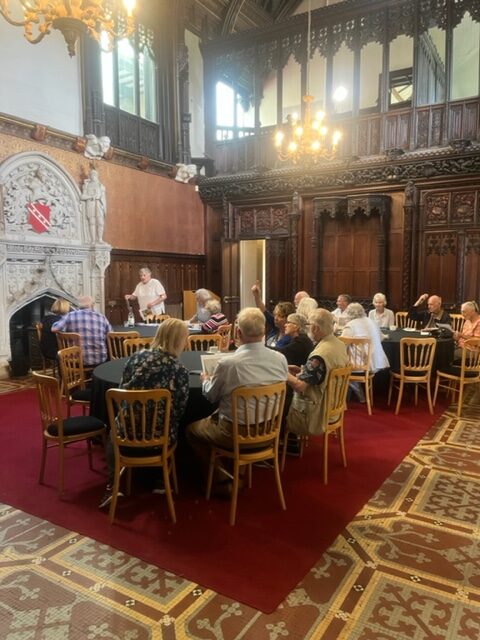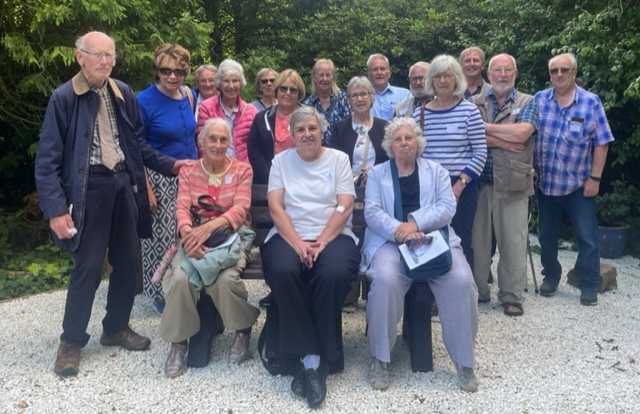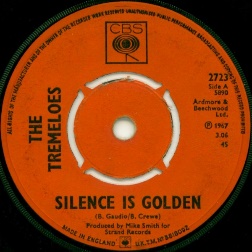Introduction
The process of renewing membership is now under way. Already 22 people have sent in forms and cheques/transfers to continue as part of SUES. There has also been encouraging registration for the first two courses, and we are now in a position to provide details for the third course (see below). Once again we are delighted to be able to offer a science event which provides a good balance to our overall season. Those who attended Alan Potter’s course on the Human Brain earlier this year will know that you don’t have to be a scientist to derive interest and pleasure from his presentation. If chemistry at first sight appears a formidable subject, have no doubts that it will be made accessible.
We attach a revised programme and application form as separate items with this FORUM. Please note that for future applications/registrations it is important to use this revised form rather than the one which appeared with the July FORUM.
Subscriptions are officially due on 1st September. We will send September’s FORUM to existing members, but October’s will only go to new or renewed members.
A report on the Scarisbrick Hall visit appears below. The first day planned (3rd August) had to be cancelled and a further visit has now been arranged for 26th August.
We provide advance notice of two September events, our first Friday afternoon talk of the 2022-3 season and the start of Peter Firth’s multi-session course on the Crusades. It is our policy to allow a guest to attend one event free of charge, but in order to attend a second event one must be a signed-up member.
Our main article on the theme ‘Silence is Golden’ follows. An incomplete version of Part One of this article appeared in the last FORUM. Rather than repeat the correct one we have decided to publish the whole article in full.
As we move into a new season it is perhaps appropriate to repeat our invitation to members to contribute to this FORUM. We welcome articles on a range of topics. In the past we have had pieces of an academic nature, essays on occasional themes that capture the interest of the author, book reviews, stories and poems. There is also an opportunity for someone to present a literary, artistic or even musical item with a description of a personal response. Articles can be as short as 300-500 words or as long as 1000-2000, although we will try not to be too rigid. Any thoughts as well as actual items should be sent to John Sharp.
Visit to Scarisbrick Hall
To bring another successful year for SUES to a close, a visit to Scarisbrick Hall was arranged for two afternoons in early August. The visit on 3rd August had to be cancelled for circumstances beyond our control and has since been rearranged for 26th August. However, the visit on 4th August went ahead and those attending enjoyed both an interesting tour and beautiful weather.

The walk around the property began in the sweeping grounds stretching to almost 450 acres and as they were described, their extent and lavishness could be appreciated. A family residence since 12th century, the building on this site began its transformation from an essentially Elizabethan residence to one encased in stone in the early 1800s. Both Thomas, then Charles, Scarisbrick commissioned artisans to begin the work who included the renowned architect Augustus Welby Northmore Pugin.
Following their deaths, Lady Anne Hunloke (who took the name Scarisbrick) inherited the property and undertook more major works using Edward Welby Pugin as her architect. In doing so no expense was spared to create a luxurious country home. Under her daughter Eliza, Marchioness de Castéja and her family in the late 1800s, the hall was at its most spectacular. However, the fortunes of the estate changed significantly following the two world wars and it changed hands many times as a result. Since 1963 it has been used as a school, first for boarding boys and currently under the Scarisbrick Hall School Trust Limited (since 2009). It is to the latter that we were grateful to have the opportunity to explore and enjoy the marvellous grounds and the splendid interiors.

The tour was expertly organised and managed by Mary Ormsby, Vice-Chair of SUES, whose extensive knowledge of the history of the building and the families who have lived there, brought the estate and hall to life. As visitors we were given access to many splendid rooms displaying ornate carvings, creative architectural features and wonderful decorations. From fireplaces to stained glass and from carved doors to intricate paintings, the hall displayed the life, times and passions of the wealthy over the preceding centuries.
As with each of our summer outings, we also enjoyed tea and cake together – this time in the marvellous surroundings of the Great Hall. For such intimate access to the site, we are grateful to Suzie Walmsley, the Marketing Manager of the school, who also provided the splendid refreshments. The visit ended once again outside and this time by the boathouse. As we gathered for our traditional photograph, it is right that Mary should be at its centre as it is through her passion for the hall and her dedication to SUES that she provided such an interesting and informative tour together with a souvenir booklet for each of those fortunate enough to attend.

Alan Potter
Addition to 2022-2023 Programme
Uncovering the Mystery in Chemistry (Spring 2023)
Alan Potter
6 Sessions: May 8, 15, 22, 25th (Thursday); June 5th, 8th (Thursday)
Course fee: £30

It is fascinating why chemistry, an aspect so fundamental to everything in our lives, and indeed life itself, is a subject we often know so little about since leaving school. In this course, simple examples and everyday language will be used to explain the nature of chemistry from the emergence of the first particles and substances to the nuclear and micro-world we live in today.
This journey will recognise the early experiments and new discoveries of alchemists and chemists to highlight the struggle through which the human race has sought to uncover the mysteries of chemistry in order to use and control it. In the latter sessions, aspects of everyday life from food and farming, to drugs and dyes and from glue and gouache to nylons and nature itself will be used to help to reveal the exciting world of chemistry.
Please note that this course has 4 of the usual Monday morning meetings (May 8th, 15th, 22nd and June 5th) but also 2 Thursday morning meetings (May 25th and June 8th). This is necessary to fit in with the availability of the speaker and the room and gives us a chance to experiment with a slightly different course structure. As always, sessions in long courses last two hours and in shorter meetings take 45-60 minutes – both include free refreshments.
Reminder – Course on Crusades Starts 26th September
Era of the Crusades
Peter Firth
9 Sessions: September 26; Oct 3, 10, 17, 31; November 7, 14, 21, 28
Course fee: £45

When we think of the word Crusades, it might immediately evoke images of battles in the Middle Ages between Christians and Muslims in the Holy Land. We might also recall the feats and valour of Richard the Lionheart, as well as the appearance of military orders, such as the Templars and Hospitallers, protecting and looking after Christian pilgrims. Most histories of the Crusades focus on the period from the call to defend the Christians in Jerusalem by Pope Urban II in 1095 to the fall of Acre in 1291.
However, the term, crusading, embraces far more than these two centuries of religious warfare. It includes a rich history of events in western Europe, Byzantium and around the Baltic Sea. It can even be argued that crusading rhetoric was still being applied to events as late as the beginning of the eighteenth century. Whilst focusing on events in the Holy Land, this nine-week course will provide a much wider context and understanding of crusading during the second millennium.
Silence is Golden
For members of a certain vintage, you may recall a No. 1 in the British hit parade in 1967 with the same title, sung by the Tremeloes. Anyone, lucky enough to be at the Liverpool Philharmonic on May 13th, would have witnessed a live version of that hit by the group’s increasingly ageing remnants, the Trems. Despite this and any potential mobility limitations, their performance was as loud and bouncy as ever! So, where did the Tremeloes want us to find that golden silence? One simple answer: just look at the way English is spelled and, more importantly, compare this with the way it’s spoken.


To help explain this, you may already be aware of some family surnames, such as Cholmondley, Featherstonehough, Marjoribanks, Brougham and Beauchamp. Their somewhat outrageous pronunciations are something like: Chumley, Fanshaw, Marchbanks, Broom and Beecham, the result of multiple silent letters. I often wonder whether the spellings are retained by those families just because of the disconnect between script and sound.
On a more individual level, have you ever thought about how many sentences we use in everyday English that contain silent letters? There are at least three easily recognisable ones in the preceding question, as highlighted (g, h and e). Experts estimate that about 60% of English sentences contain at least one silent letter! You might like to think about that for a minute to let it sink in.
Before we explore this phenomenon, let’s playfully pose a question which involves a non-native student learning English. Taking the contrived word ‘ghoti’, we might ask how this ‘word’ should be pronounced. One response could well be something like “go-tee”. This, of course, would be completely wrong! The real answer is that such a word, if it ever existed, would be completely silent!
To demonstrate this: take the “gh” as it appears in though, through, thorough, in which there is no sound; the “o” as in jeopardy, leopard, colonel, people; the “t” as in listen, castle, fasten, bustle; and the “i” as in business, friend, cruise. Simple?
Notwithstanding this silent answer, an equally plausible one is that those five letters could also be pronounced “fish”. This would be confirmed by the “gh” in tough, rough, cough; the “o” as in women; and the “ti” in ration, potion, and installation. Still confused?
Not all languages have such idiosyncrasies. For example, Spanish is standard in its pronunciation, with virtually no irregularities and, therefore, an absence of silent letters, apart from the letter “h” and also in some imported foreign words. The same can largely be said about Italian and to a lesser extent about German. However, another language which has many pronunciation inconsistencies is French. Even a passing knowledge reveals a similar problem between French pronunciation and spelling, with its wide range of silent letters, some of which spill over into English words (see below).
In order to demonstrate the extent of silent letters in English, the Reader’s Digest printed an article which included the following contrived sentence:
The rogue knight doubted that the asthmatic knave in knickers could climb the castle columns, but when their wrangle wrought chaos on the couple, the knight resigned with the knowledge that their tight-knit friendship wouldn’t succumb to dumb disputes.
If you were to pronounce every single letter you see in that ridiculous sentence, it would sound a lot differently from what you’ve just read in your mind. With any luck, this won’t become an irreversible process, whereby you now start to be fixated on pronouncing silent letters all the time!
In short, within this manufactured text of 214 letters, 35 are recognisably silent (there are actually even more; see diacritic letters below). Hopefully, this is sufficient evidence to demonstrate their extensive appearance in English words. So, what are the reasons behind this?
Let’s first take a small selection of words, alphabetically arranged, and see if there are any patterns but, more importantly, to recognise the range and type of words with silent letters. Many may not be immediately obvious. Having absorbed these idiosyncrasies into English, we no longer notice them as being silent!
You will note that there is a wide variety. Some silent letters appear in many words, others in only one or two. You might not agree with all of my selection, for example, where double letters don’t alter the sound of a word like accommodate. Furthermore, it is important to remember that we all do not pronounce words in the same standard way. Each of us is unique in our articulation of them. Therefore, as there may well be differences of opinion over my selection, you’ll see I’ve added some of my reasoning behind this.
a: meant, realm, bread, head, lead (the metal), read (the past tense of to read), logically, artistically, eventually, musically, stoically, romantically (you might hear some people saying a faint “a” in the last six words with an “uh” sound; but how many of us would express logically and “logicly” differently?)
b: comb, climb, tomb, debt, limb, plumber, doubt, crumb, numb, thumb, lamb, succumb, subtle, aplomb, plumb, womb, dumb (but dumbo!), bomb (but still silent in bomber)
c: indict, victuals, scent, scenario, descent, crescent, scissors, scene, muscle, fascinate, ascent, science, conscience, fluorescent, abscess, conscious, disciple, obscene, resuscitate
d: sandwich, handkerchief, adjust, adjective, handsome, grandson, Wednesday (there might be a trace of a “d” sound in the last three with some people, but for how much longer?)
e: called, laughed, every, different, several, interesting, are, literature, temperature, plaque, line, name, give, hate, clothes (see note below about diacritic letters)
f: halfpenny (ha’penny), suffer, different, stiff, traffic, giraffe, affair, diffuse (the double “ff” doesn’t add to the way these words are pronounced; compare the last two in the list with afar and refuse where only one “f” makes the same sound; also compare prefix and suffix; stiff was written “stif” in Old English; many languages use only one “f” to make this sound in similar words, such as diferente in Spanish, but différent in French)
g: align, assign, benign, campaign, champagne, cologne. consign, design, feign, foreign, gnarl, gnash, gnat, gnaw, gnome, high, light, reign, malign, resign, sign (see note below regarding the last three)
h: heir, hour, ghost, aghast, when, what, honour, rhythm, anchor, archaeology, architect, archive, chaos, character, charisma, chemical, choreograph, chorus, Christian, Christmas, echo, why, whether, which, where, while, white (in the last four or five words, it can be argued that some Scots and other dialects might pronounce the “h” before the “w”)
i: business, friend, cruise, foreign, parliament
j: marijuana
k: blackguard, knack, knuckle, knowledge, know, knot, knock, knob, knitting, knit, knight, knife, knickers, know, knee, knave, knead, kneel, knell, knoll
l: yolk, talk, salmon, half, calf, should, would, could, half, palm, almond, balm, calm, chalk
m: mnemonic, mneme
n: solemn, hymn, damn, condemn, column, autumn
o: jeopardy, leopard, colonel, people
p: psychology, pneumonia, pseudo, psychiatrist, raspberry, psalm, cupboard, coup, corps, receipt
q: lacquer, racquet, acquire (it might be argued that “c” is the silent letter in these three.)
r: forecastle (fo’cstle), farther, reader, leader, butter (some dialects do pronounce the final “r” in the last three), arrow, arrogant (only one “r” is necessary, as in arose, around), record (noun), February (you might sometimes hear the first “r”)
s: viscount, isle, aisle, island, debris, bourgeois, apropos
t: apostle, bristle, bustle, castle, fasten, glisten, hustle, jostle, listen, nestle, thistle, ballet, Christmas, mortgage, often (sometimes, you might hear the “t”)
u: catalogue, dialogue, colleague, guard, guess, laugh, league, tongue, biscuit, rogue, guitar, guilty, guild, guide, guest, disguise, circuit, build, guess, tongue (see below for various explanations)
v: apart from three unusual words with double “vv” – navvy (from navigator, possibly to differentiate from navy) and spivvy, the adjective from spiv, and a word popular with Stephen Fry, luvvie – “v” never appears silent on its own
w: wreckage, wren, wrench, wrestling, wretched, wriggle, wring, wrinkle, wrist, wrong, answer, awry, playwright, sword, two, whole, wrack, wrap, wrath, wreath, wrangle, wreak, writ, write, who
x: faux pas, faux
y: beyond (despite yonder/yon, this could be written “beeond” or “be-ond” and would sound the same)
z: rendezvous, laissez-faire, chez (despite being French, these have been firmly established entries in English dictionaries for centuries, as with the French silent “x” and the silent Greek “p”)
The above assortment has been based on what most people call Standard English. However, when we go to equally valid regional dialects or non-standard English, such as Scottish English, Black English, Asian English, Australian and New Zealand English, together with a multiplicity of other non-standard Englishes, the number of silent letters can be much higher (although in a few cases, lower).
But these often confusing words in pronunciation weren’t intended to be confusing. There are a variety of reasons as to how their silence came about – some subjectively manipulated, others evolved socio-linguistically, that is, a change brought about by those actually using the language. In most cases, silent letters were originally pronounced.
For example, the “kn” in “knight” originally made two sounds “k-night”, before the “k” became silent in the 1500s, about the same time as the “t” in castle and soften did the same.
Many factors have been at work by which letters have become silent.
In Old English, its orthography (the way it was written, using syllables, technically referred to as graphemes) was estimated to be 90% phonemic (spoken the way the words were spelled). In comparison, linguists describe English today as highly non-phonemic, in other words, its spoken form has changed radically, whereas its written form has been much more stable.
Thereafter, following the Norman Conquest in 1066, the language of the Church and the Court became almost exclusively Latin and Norman French. As a result, three important aspects impacted on the spelling of English. Its written form became almost non-existent and any degree of standardisation in spelling across the country was lost. In parallel, for over two centuries, spoken English continued to evolve, without being written down; this led to a greater inability to agree on standardised spelling when written English was eventually re-instated. Equally important, French words, absorbed into English, usually took on their French spelling, together with any inherent silent letters, such as “e” in table and double.
Prior to the invention of the printing press, this lack of uniformity meant that there were very often multiple ways of spelling the same English word by region. Let’s take the modern word such which was written down as swich, swech, sich, sech, soch, swilk, even such. (The different spellings might not necessarily have indicated different pronunciations). At that time, scribes spelled as they thought fit, thereby creating the dialect or regional differences.
Eventually, people like Geoffrey Chaucer decided upon a particular spelling for his texts, to try and bring about some sort of standardisation, using mainly the East Midland dialect. As these words slowly became adopted, more silent letters were incorporated into English.
The arrival of the printing press in England around the same time was revolutionary in many ways, particularly its impact on spelling choices. Coming from the Low Countries and Germany, many of the pioneer owners introduced their own printing house styles of spelling. This group included William Caxton who, after spending some 30 years in Bruges, set up his first press in 1476 at Westminster.
Although widely acclaimed for literate innovation, Caxton was not a good translator of books. English versions of the more popular books on the Continent were in high demand. As a result, under pressure to publish so many in a short time, Caxton sometimes took French words into English, bringing in more silent letters.
Furthermore, even the English language stories that he was asked to print had to be transcribed from handwritten texts in a variety of styles and dialects, as well as oral ones. Caxton was a technician rather than a writer; he often faced dilemmas concerning language standardisation. After such a long time abroad, it is small wonder he might have been unsure about how to spell certain English words.
In parallel, this lack of standardisation presented Continental printers in England, particularly Dutch speakers, with a degree of control over the way words were being spelled. This enabled them to smuggle extra letters in, including the silent “h”, as in ghost, aghast, gherkin – to mirror the orthography and conventions of their own language. Originally, this list even included an “h” in words, such as ghoot (goat) and gherle (girl); thankfully, these particular spellings did not prevail.
Another factor that resulted in silent letters around the same time was the human ego! Some so-called scholars, with influence over how English spelling would evolve, added extra letters simply because they could! For example, they added the silent “b” to doubt, so as to educate what they assumed was a public oblivious to the word’s derivation Latin. All they did was turn “dout” into doubt (dubitare) and “det/dett/dette” into debt (debitum). (However, compare with dubitable and debit.) Other examples include a “c” into “vitailles/vitaylles” to make victuals (victualia) and an “s” into “iland/yland” for island (insula). These unnecessary consonants are mere intellectual decoration!
As a result, we constantly “misspell” various words, created by those lexicographers, as they compiled the earlier English dictionaries and wanted to show off their classical learning with more style. This was much to the detriment of native and non-native users of the language. As Melvyn Bragg has commented, these so-called Tamperers only succeeded ‘in winnowing out the under-educated, stumping children and foxing foreigners’ alike, as they wrestle with the range of inconsistencies in English.
Shakespeare actually satirises these inconsistencies in Love’s Labours Lost, Act V Scene 1, putting the following into the mouth of one his characters, the pedant Holofernes:
I abhor such fanatical phantasimes, such insociable and point-devise companions, such rackers of orthography, as to speak “dout,” fine, when he should say “doubt”; “det,” when he should pronounce “debt”—d, e, b, t, not d, e, t: he clepeth (calls) a calf, “cauf”; half, “hauf”; neighbour vocatur (called) “nebor”; neigh abbreviated “ne.” This is abhominable—which he would call “abominable”…..
Whilst these inconsistencies are very significant in the history of silent letters, an even greater seismic impact on English can also be traced back to this period: the so-called Great Vowel Shift (GVS). This complicated process is still not fully understood by language experts, but its major phonetic change particularly affected how long vowels were spoken. Related to this was the emergence of another silent “e” at the end of a word, which made “hid” an entirely different word from “hide.” The development of “e” into a diacritic letter caused it to become silent, whilst creating an elongation of the pronunciation of a previous vowel.
Other examples of the changes caused by the GVS phenomenon can be illustrated in the way a word like “clean”, previously analogous to “lane”, today rhymes with “lean”. This development explains why some of Shakespeare’s rhymes are no longer effective when spoken today. Similarly, a sentence today, such as “I name my boat Pete”, would have sounded more like “ee nahm mee bought Peht”.
Perhaps, as an easy way to appreciate how GVS has evolved, let’s consider one aspect of the many changes noted during Elizabeth II’s 70-year reign. The Times has revealed how Her Majesty has articulated herself from being “frightfully, frightfully posh” to becoming more “common”.
English is sometimes referred to as ‘the Queen’s English’ or ‘BBC English’, academically known as RP (received pronunciation). But, after analysing over 2300 vowel sounds from each of the Queen’s annual Christmas broadcasts, sociolinguists have been able to track subtle changes, whereby sounds, such as “fencey”, “dead”, “said”, “heppy”, have taken on the more usually spoken sounds of fancy, dad, sad, happy. Equally, a 1950s visit to one of her subject’s dwellings, being described as a “vair nice hice”, might be expressed in three more familiar sounds today: very nice house.
Language experts identify that 1950s society was more stratified than today. But, with the rise of the so-called lower-middle and middle classes into positions of power and in closer contact with the Queen, unconsciously and imperceptibly, her vowel articulations now sound more like her subjects.
Taking place over the course of several centuries, GVS has been a contributory factor in the development of different accents in English, particularly the way some vowels are spoken today in Australia, New Zealand and North America.
But, once again, this shift in vowel pronunciation in modern English has witnessed little or no change in spelling.
Another contemporary development to GVS has been the absence of sound in “gh”, as demonstrated in the silent version of “ghoti” above. The “gh” originally sounded like a back-throat fricative, still retained in the Scots pronunciation of loch. But, during the seventeenth century, this started to disappear and became silent for most speakers of Standard English, another consequence of sociolinguistic change.
Over time, there has also been a very important, but separate, evolution in English pronunciation in unstressed syllables. In this, the original sound has been slowly reduced to what linguists refer to as the schwa sound e.g. the last syllable of “sofa” where the “a” is pronounced like “uh”. Most people don’t realise this has happened.
There are a multitude of instances of schwa in English today, as already highlighted under the silent “r” words “leader” and “reader”. Others include danger, bitter, the (except before a vowel), desert, parliament, secretary, pencil, carrot, circus, effect, bikini, police, support, syringe, etc. Try saying these words to see how they all have the “uh” sound for a range of different letters. And, if you’re still not convinced about the occurrence and variety of schwa, just think how you would express the last rhyming syllables of adventure and dementia and compare their respective spelling!
Not all words that include schwa have silent letters, although several in the previous sentences do. But, in many cases, the development of schwa has given rise to silent letters that eventually omit syllables, such as the second “e” in “every”. Originally, this had three very distinct syllables “ev-e-ry”. However, the middle one first became pronounced schwa, something like “ev-uh-ry” and, finally, today’s two syllable “ev-ry” has emerged.
A similar loss of syllable is demonstrated in words like different, several, interesting, literature; even the word spelled has lost a syllable! In time, more syllables are likely to follow this same, silent, linguistic path, while speakers of most languages unconsciously reduce the articulation of words sounds towards monosyllables. Just think of the many spoken contractions, such as do not → don’t, she would → she’d, do on → don, do off → doff (as in putting on and taking off a hat). Oversimplifying the point somewhat, we often think of Mandarin Chinese as a largely monosyllabic language, as is Vietnamese.
Another class of words with silent letters are those borrowed from other languages. We have already seen this with French imports; others include tsunami, a Japanese word, and psychology, from Greek.
Because the consonant combinations “ts” and “ps” aren’t used to start words in English, the first letter is ignored and simply becomes silent in pronunciation, thereby meeting the phonological rules of English. The same would apply to pterodactyl. In short, English has adopted the spelling but not the pronunciation of many foreign words.
Some silent letters, however, can be very useful. Even though we can’t hear them when the word is spoken, they do appear in their written form. They can help distinguish between homophones – words that sound the same but are spelled differently. These include in/inn; be/bee; Lent/leant; him, hymn. In this way, silent letters can be an aid to readers already familiar with both words.
There can be other helpful reasons for the appearance of silent letters. They may provide an insight into the meaning or origin of a word, e.g. vineyard suggests vines more than the phonetic “vinyard”.
Silent letters also differentiate between guest (visitor), with a ‘hard’ consonant, and gest (tale of adventure), with a ‘soft’ consonant. Similarly, a silent “u” before a soft vowel (“e” and “i”) helps “harden” the preceding consonant, as in guest, guild, guide. They can even help to connect different forms of the same word e.g. malign but malignant, resign but resignation, sign but signature – silent “g”, then pronounced.
It would be difficult to predict words which will become silent in the future, as a result of socio-linguistic change or other factors. But it is already notable that the final “g” in words, such as banging, going etc, is often dropped when the words are being spoken, although less so in the north of England. However, this missing letter can be represented by an apostrophe, such as in the Dusty Springfield 1960s hit with the opening words: Wishin’ and hopin’ and thinkin’ and prayin’, plannin’ and dreamin’…, and the criticism from a Labour peer in 2021, levelled at the Olympics’ commentator, Alex Scott, who’s proud of her London heritage, insisting that competitors were not ‘taking part in fencin, rowin, boxin, kayakin, weightliftin and swimmin’. So this “g” might not only become silent, but simply dropped and replaced by an apostrophe or nothing at all.
But there is one clear candidate to become even more of a silent letter in the future. Increasingly, “t” is not heard in words, such as international, pronounced by some as “in’ernational”, also “in’eresting” for interesting, “an’iseptic” for antiseptic, “bo’ul” for bottle “cri’ic” for critic and “twen’y” for numbers between twenty and twenty-nine and mirrored by every successive group of tens up to one hundred. Possibly less excruciating on the ear is the way some regional accents seem to smother a “t”. This can be detected in the way a resident of the north-east of England (and some parts of London) might pronounce motor car more like “mo’or” car. If adopted right across the country, we’d have another silent “t” to add to the list.
It has also been suggested that abbreviations, frequently seen in text and similar means of messaging today, might produce more silent letters.
Despite attempts to reform English spelling over the centuries, this has had very marginal success – only very limited in American English. Such campaigns will be the subject of a future article.
So, it seems we are stuck with silent letters, probably to the delight of purists and conservatives but, more importantly, also for other pragmatic reasons. Language is a human tool – perhaps, the most effective tool we have – and it is constantly evolving. While they may seem useless at times, it’s almost impossible to ignore silent letters because they play such a prominent role in the English Language. Modern English spelling is a bit like linguistic archaeology, as one leading expert has put it. Combinations of letters and apparently arbitrary silent letters provide clues as to how the language was pronounced in the past. While English spelling can be frustrating at times, this link constitutes an important part of our cultural history. So, in this respect, the Tremeloes were right. Silence is golden – a golden part of our rich, national heritage.

Peter Firth
Contacts
Chair: Alan Potter
alanspotter@hotmail.com
07713 428670
Secretary: Roger Mitchell
rg.mitchell@btinternet.com
01695 423594 (Texts preferred to calls)
Membership Secretary: Rob Firth
suesmembers74@gmail.com
01704 535914
Forum Editor: Chris Nelson
chris@niddart.co.uk
07960 117719
Facebook: facebook.com/groups/southportues
See our archive for previous editions of the SUES Forum!